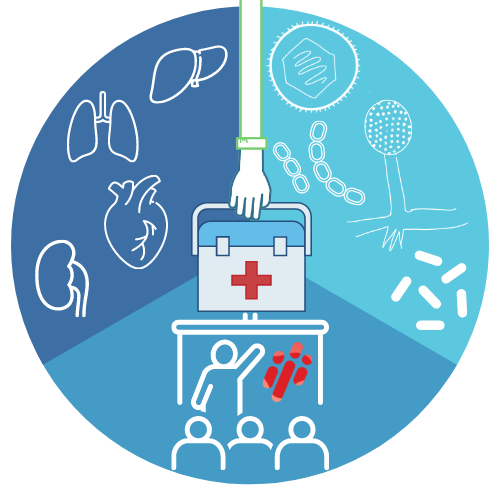
Balancing Emotions: Pathway to Emotional Harmony
Life is a dynamic journey filled with a spectrum of emotions. Achieving emotional harmony involves understanding, navigating, and balancing these emotions to foster well-being and resilience. Explore the pathways to emotional harmony and learn how to cultivate a balanced emotional landscape.
Understanding Emotional Harmony: A Holistic Perspective
Emotional harmony is not about eliminating negative emotions but rather about achieving a balanced and healthy emotional state. It involves acknowledging and understanding your emotions, both positive and negative, and finding ways to navigate them with resilience. This holistic perspective fosters self-awareness and emotional intelligence.
Embracing a Range of Emotions: The Beauty of Diversity
Every emotion has its purpose, and embracing the entire spectrum of emotions is essential for emotional harmony. Happiness, sadness, anger, and fear all provide valuable insights into our experiences and needs. By accepting and embracing these emotions without judgment, we create space for a more authentic and balanced emotional life.
Mindfulness and Emotional Presence: Grounding in the Present
Practicing mindfulness is a powerful tool for achieving emotional harmony. Mindfulness involves being fully present in the moment without judgment. By cultivating awareness of your thoughts and emotions, you can respond to them more intentionally. This practice promotes emotional stability and a deeper connection with your inner self.
Effective Communication: Building Emotional Bridges
Communication plays a pivotal role in emotional harmony, both with oneself and others. Expressing emotions openly and honestly fosters understanding and connection. Effective communication involves active listening, empathy, and the ability to articulate emotions. Building emotional bridges through communication contributes to harmonious relationships.
Self-Care Practices: Nurturing Emotional Well-Being
In the pursuit of emotional harmony, self-care practices are paramount. Taking care of your physical, mental, and emotional well-being creates a foundation for resilience. This includes adequate sleep, nourishing nutrition, regular exercise, and activities that bring joy and relaxation. Self-care is a holistic approach to fostering emotional balance.
Cultivating Emotional Resilience: Bouncing Back from Challenges
Emotional resilience is the ability to bounce back from challenges and setbacks. Cultivating resilience involves reframing negative thoughts, learning from experiences, and developing a positive outlook. Resilience enables individuals to navigate difficulties with a sense of strength and adaptability, contributing to overall emotional harmony.
Setting Boundaries: Protecting Emotional Space
Establishing and maintaining healthy boundaries is crucial for emotional harmony. Boundaries protect your emotional space by defining limits in relationships and responsibilities. Clear boundaries help prevent emotional overwhelm and create a sense of safety, fostering a healthier emotional environment.
Practicing Gratitude: Elevating Positive Emotions
Gratitude is a powerful tool for enhancing emotional harmony. Focusing on what you are grateful for cultivates positive emotions and shifts your perspective. Regularly practicing gratitude encourages a mindset of abundance and contentment, counteracting negativity and promoting emotional balance.
Seeking Support: Embracing Connection in Challenges
Emotional harmony does not mean facing challenges alone. Seeking support from friends, family, or professional counselors is a valuable step. Sharing your thoughts and emotions with others fosters connection and provides different perspectives, contributing to a more balanced emotional outlook.
Explore Emotional Harmony with Studentals.net
To delve deeper into the journey of emotional harmony, visit Studentals.net. Discover resources, articles, and tools that provide insights into cultivating emotional well-being. Emotional harmony is an ongoing process of self-discovery and growth, and with the right tools and knowledge, you can navigate your emotional landscape with grace and resilience.





